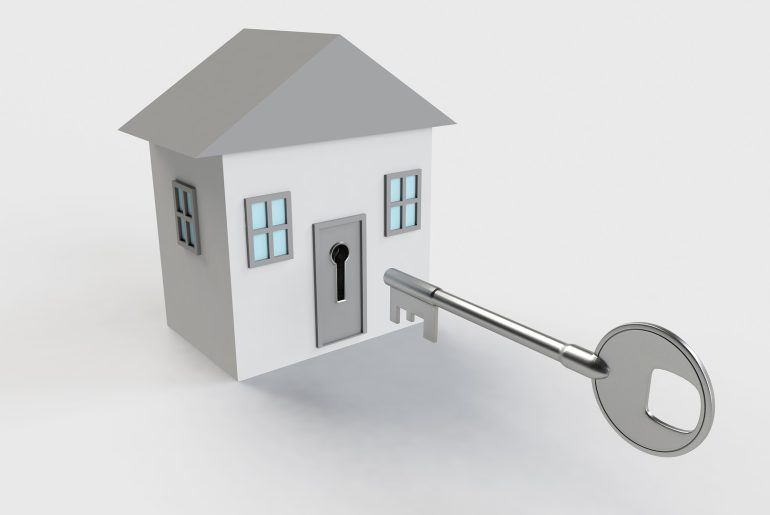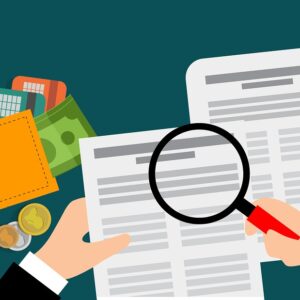This article may contain references to products or services from one or more of our advertisers or partners. We may receive compensation when you click on links to those products or services. Nonetheless, our opinions are our own.
The information presented in this article is accurate to the best of our knowledge at the time of publication. However, information is subject to change, and no guarantees are made about the continued accuracy or completeness of this content after its publication date.

Updated by Albert Fang
Homeownership is among the most money-intensive undertakings most Americans make. Also, it’s a journey that takes a considerably long period, with typical mortgage loans having repayment periods of between 15 to 30 years.
Being such a long-term investment, you must ensure that you get your math right before and after committing to home buying. If you are on a journey to become a homebuyer for the first time but are unsure if you are taking the right steps, this guide offers tips on what to consider when buying your first home to ensure you do not get into a financial mess.
Get Your Budget Right
The most common mistake first-time home buyers make is going for the home they want rather than a home they can afford. If your home is way over what you can afford, the lending company will likely not approve your loan. But even when a lender could approve your loan, it’s essential to evaluate if a large mortgage is what you need at the moment.
So start with making a budget. The first step in creating a budget is looking at your annual income. Then consider your annual installments alongside other obligations such as savings, debts, and costs that come with home ownership, such as home insurance, property tax, bills, and maintenance costs.
If, after deducting the expenses, you are left with close to nothing, that mortgage is too expensive, and you should consider a cheaper option. Ideally, housing costs should not exceed 30% of your income, mortgage repayments included.
If you are unsure what mortgage option suits you, this first-time home buyer’s guide by Sofi for help making the right decisions.
Save For a Down Payment
Most lenders require borrowers to make a down payment when applying for a mortgage. The payable down payment percentage depends on the type of mortgage and the lender. One lender can ask for a deposit of as low as 3% of the home’s value, while others can ask for as high as 20%.
While you may want to choose the option with the least down payments, saving for a down payment is the better option. The reasoning behind this is simple; paying a larger down payment reduces your mortgage’s overall size, which could mean more manageable installments. Also, a higher down payment can see you get better rates.
If you go for a down payment of less than 20%, the lender may require you to carry private mortgage insurance (PMI). So, paying 20% or higher as a down payment can translate into significant savings. Lastly, having a large down payment gives you more equity in your home which can work in your favor should you need to sell your home.
Readjust Your Budget
Budgeting before deciding to buy a home is essential. However, even the best budget doesn’t always align with reality, so it’s important to readjust your budget after securing a mortgage.
With your mortgage deducting a substantial chunk from your account, your financial situation will likely change, and you could feel a little under pressure. This is where readjusting your budget comes in. For example, you decide to cut on expenses that are not absolute necessities, like scaling back on the number of streaming service providers you subscribe to.
Also, avoid money-intensive investments at all costs unless they are absolute necessities. For example, you could hold off buying a new car until you stabilize your financial situation.
Consider Refinancing
It is possible to get into a mortgage situation but feel the need to back down midway into your loan servicing. While you may not have the option of defaulting your payments, as this could mean losing your home, you could seek to refinance your mortgage.
Refinancing means taking a new mortgage to pay off an older one. Doing this is particularly beneficial if you get an option that offers better terms than your existing mortgage, all fees considered.
Another good reason to refinance your mortgage is if you have multiple debts you want to consolidate. If you have considered mortgage refinancing but are unsure if it’s the best action, consider talking to a financial professional.

Reviewed and edited by Albert Fang.
See a typo or want to suggest an edit/revision to the content? Use the contact us form to provide feedback.
At FangWallet, we value editorial integrity and open collaboration in curating quality content for readers to enjoy. Much appreciated for the assist.
Did you like our article and find it insightful? We encourage sharing the article link with family and friends to benefit as well - better yet, sharing on social media. Thank you for the support! 🍉
Article Title: 4 Considerations for First-Time Home Buyers to Enhance Personal Finances
https://fangwallet.com/2022/12/23/4-considerations-for-first-time-home-buyers-to-enhance-personal-finances/The FangWallet Promise
FangWallet is an editorially independent resource - founded on breaking down challenging financial concepts for anyone to understand since 2014. While we adhere to editorial integrity, note that this post may contain references to products from our partners.
The FangWallet promise is always to have your best interest in mind and be transparent and honest about the financial picture.
Become an Insider

Subscribe to get a free daily budget planner printable to help get your money on track!
Make passive money the right way. No spam.
Editorial Disclaimer: The editorial content on this page is not provided by any of the companies mentioned. The opinions expressed here are the author's alone.
The content of this website is for informational purposes only and does not represent investment advice, or an offer or solicitation to buy or sell any security, investment, or product. Investors are encouraged to do their own due diligence, and, if necessary, consult professional advising before making any investment decisions. Investing involves a high degree of risk, and financial losses may occur including the potential loss of principal.
Source Citation References:
+ Inspo












































